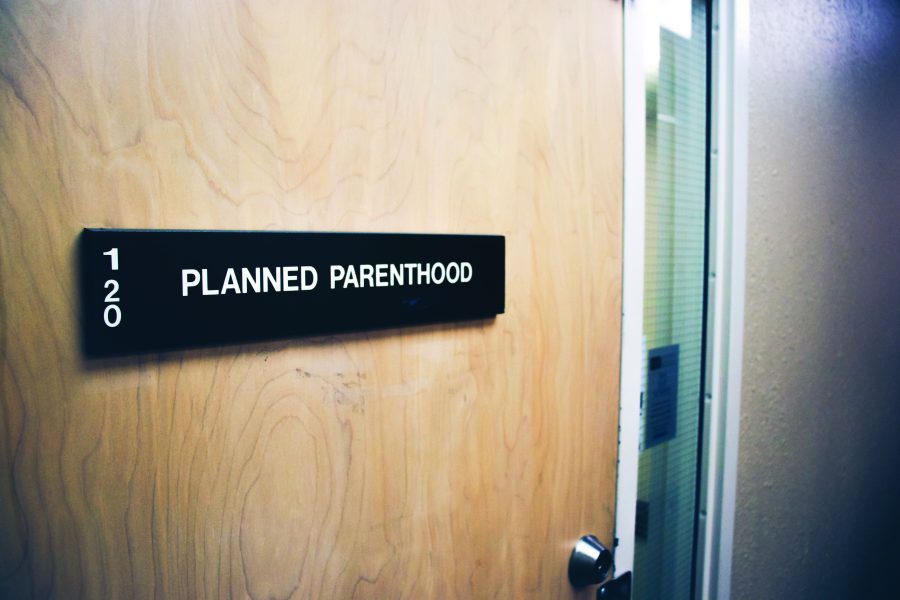Rep. Cheryl Acton, R-West Jordan, filed a bill, 2019 House Bill 136, that would legally ban women in Utah from having abortions after 15 weeks of pregnancy with some exceptions. If passed, Utah would have one of the most restrictive abortion laws in the country.
“I’ve always been opposed to abortion, but I’ve never actively participated in any organized effort to ban the practice,” Acton said in an email. “In fact, this bill does not ban abortion at all— it only requires women to decide to abort about five weeks earlier. That is the only difference between this bill and current Utah law.”
“While preparing to present this bill,” Acton said, “I’ve observed that the very word ‘abortion’ causes people to stop thinking and retreat to pre-determined, self-described labels: pro-life or pro-choice. Roe v. Wade was decided in 1973— 45 years ago— and much has been learned since that time. It never hurts to re-evaluate one’s position in light of new facts which have come to light through improved ultrasound technology, data collection, research, etc.
“Most countries in the world, even in Western Europe, do not allow elective abortion after 12 weeks, because they consider second- and third-trimester abortions a human rights violation.”
“I support Rep. Acton and her reasoning behind the bill,” said Jesse Craig, a recent economics and English graduate from the University of Utah. “At 15 weeks, the baby’s kidneys are working, brain impulses are firing, the nervous system has begun development, it’s beginning to experience sound and light and the determination of the baby’s sex happens at this point. Clearly, aborting a baby at this point in their development is unacceptable. The bill also accounts for those extreme cases, i.e. when the mother’s life is at stake or rape victims, and exempts them which I appreciate.”
People who believe the bill is likely to fail point to a similar 15-week abortion law passed in Mississippi last year that was blocked by a federal court. According to a memo released by the Office of Legislative Research and General Counsel, Acton’s bill would also have a “high probability of being declared unconstitutional.”
If the bill does face a legal challenge under Roe v. Wade, Acton hopes to push an appeal up to the U.S. Supreme Court, stating that “Our in-house attorneys at the attorney general’s office will defend it at no additional costs to Utah taxpayers. That is what they do.” This would cost around $2 million according to an estimate by the Utah Attorney General’s Office.
In 2016, a federal court permanently blocked a law banning abortions in North Dakota as soon as a heartbeat is detected in the fetus — as early as six weeks gestation. A federal court also blocked an Arkansas law banning abortions after 12 weeks. The U.S. Supreme Court declined to hear either case.
Lauren Simpson, Better Utah policy fellow, said, “our state lawmakers are once again attempting to chip away at safe and legal abortion access.” Simpson said that defending the law in court would deny funding to other needed projects and causes.
Others cite concerns about access to resources and safety to the mother. “The courts have been very clear the states cannot restrict a woman’s right to access to abortion prior to viability,” said Heather Stringfellow, vice president of public policy at Planned Parenthood.
Mohan Sudabattula, a senior majoring in biology, philosophy and health, society and policy, said, “No matter how tight the laws get, people are going to find ways, whether that’s through the resiliency of the community, services and an underground network of connections or by going out to a neighboring state that has more liberal laws.”
2019 H.B. 136 is not the only abortion bill being run in Utah’s general legislative session. Rep. Karianne Lisonbee, R-Clearfield, is sponsoring 2019 H.B. 166 Down syndrome Nondiscrimination Abortion Act, which aims to ban abortion in cases where the child would have Down syndrome.
A version of a bill similar to Lisonbee’s failed to pass the Utah legislature last year — however, Lisonbee said this year’s version would include a “contingency date.”
Utah Gov. Gary Herbert in a statement encouraged Utahns to contact their local House and Senate representatives throughout the legislative session which began on Jan. 28. “It really is a citizen legislature. They need to listen, and they are listening to the citizens, as they legislate and do their work,” Herbert said.


